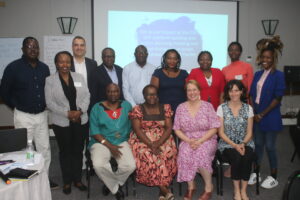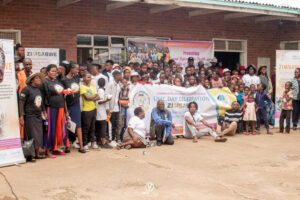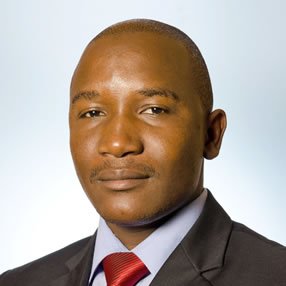CWGH English Toolkit for COVID-19 Community Monitors
CWGH Shona Toolkit for COVID-19 Community Monitors
CWGH Ndebele Toolkit for COVID-19 Community Monitors
CWGH Ndebele Toolkit on COVID-19 CWGH Ndebele Toolkit with covers-1
CWGH Kalanga Toolkit for COVID-19 Community Monitors
CWGH Kalanga Toolkit on COVID-19 CWGH Toolkit_khalanga with covers-1
‘Govt should invest in user-friendly drug rehab centres’
DRUG abuse is now a humanitarian disaster that is inflicting harm to the young generation, perpetuating violence and poverty especially among the low-income and vulnerable communities, health stakeholders have said.
Speaking to NewsDay, Community Working Group on Health executive director Itai Rusike, said there is need to focus on social support structures.
“We can only solve our current problems that have resulted in the surging drug abuse, overdose and deaths through a public health approach. The government should invest in proven services and care to address substance abuse and mental health needs,” he said.
Rusike said there is need to also invest in youth-friendly drug rehabilitation and counselling services instead of placing the burden of care on families who lack information and tools to respond to the scourge.
“Families should get greater support from government and other stakeholders to promote communication and to help those facing drug abuse challenges. We need to prioritise prevention of drug abuse and tackle the drivers of drug abuse.
“The root cause of drug abuse in Zimbabwe is lack of jobs and enterprise opportunities, recreation facilities and opportunities for young people to participate in decisions affecting their lives,” said Rusike.
President Emmerson Mnangagwa said government would come up with tougher laws to deter drug dealers from preying on youths.
For Youths by Youths team leader, Wilbert Jena, said there was need to continue raising awareness against drug and substance use through different strategies including youth friendly strategies.
“There is a need to capacitate health professionals on drug use disorders and overdose at local clinics since it’s the first port of call. Overdose prevention kits should be made easily available in local and provincial hospitals,” he said. Last week, the country joined the world in commemorating the International Day Against Drug Abuse and Illicit Trafficking.
On Friday, For Youths By Youths in partnership with other stakeholders commemorated the International Day Against Drug Abuse and illicit Trafficking in Mbare.
Statistics from the World Health Organisation indicate that over 500 000 deaths occur annually due to drug and substance use worldwide.
Perennial power cuts choke health delivery system
“The worst was seeing a new-born baby dying, and I couldn’t do anything because we didn’t have any source of power,” David Masara, nurse-in-charge at Budiriro Polyclinic in Harare, said.
His account is a tip of an iceberg on the impact of the country’s rolling power cuts on the health sector.
The perennial electricity power shortages have seriously affected the health delivery system countrywide.
Key service areas including surgical operations, life support systems, drug storages, scans, X-rays/ medical tests and examinations as well as in-patient and out- patient units have been affected.
In some institutions, expecting women have been made to bring their own lighting before admission.
However, the challenge is being averted by the recent Solar For Health initiative that has seen over 1 000 health facilities across the country being equipped with solar units as back-up in case of power cuts.
“The issue of lack of power is no longer an issue at all. Pregnant women can deliver their babies in stable conditions after the installation of the solar system,” said Masara.
In some instances, especially in rural areas, the solar systems have come in as sole power supply system.
The Solar For Health programme is being implemented by the Health and Child Care ministry in partnership with the United Nations Development Programme (UNDP).
The project is largely funded through the Global Fund.
According to the UNDP, several thousands of Zimbabweans are now enjoying reliable health services as a result of the programme.
Global Fund project manager, Emmanuel Boadi, said power is of great importance in the health sector and they would continue assisting the government to ensure that institutions have uninterrupted supply.
“Since 2017, we have installed 1 044 systems in health facilities with 19 ongoing installations,” Boadi said.
“We will continue to mobilise resources to ensure all health facilities have solar power connectivity.
“We also want to assist the Ministry of Health and Child Care in the short and long-term, to have a sustainability plan.”
Addressing journalists during a recent tour of Chivi district, local medical officer Onward Tendaupenyu, said the solar intervention had made it possible to attend some cases at their hospital, minimising referrals.
“Before the Solar For Health intervention, we had no back-up and we would refer patients in labour to Masvingo General Hospital. We are now able to do caesarean sections (C-sections) here (Chivi District Hospital), so we have had an improvement, Tendaupenyu said.
He said the intervention has been helpful in reducing challenges on maternal health.
“On average we do about 10 C-sections per week. We normally had problems with emergencies during the night. We are now saving on what we would have used in referring patients,” he said.
“We are now saving on 100 litres of fuel and over $100 for staff allowances per week. We are also doing evacuation of retained products after miscarriage, and appendicitis operations among other things requiring uninterrupted power service.”
Acting Matabeleland South provincial medical director, Andrew Muza, said the intervention has been a great help in health service delivery.
“We have 117 of our health facilities on solar back-up through UNDP and partners. There has been improved patient care in terms of quality. We now have 24/7 service provision and other systems depending on power like the expanded programme on immunisation and the electronic health record system have also been connected making it easier to do our duties,” he said.
Bulawayo City Council’s health department director, Edwin Sibanda, said the programme had eased the burden on service delivery as most of their services rely on power.
Towards the end of last year, the country was exposed to further challenges as the power crisis worsened, leading to more lengthy and untimely power cuts.
Intermittent or unreliable power sources put most patients’ lives at risk and made health service delivery a nightmare.
The Solar for Health initiative also contributes to extended hours of operation, and better retention and recruitment of healthcare workers in remote settings, ensuring effective, safe healthcare.
At Mhandamabwe rural health centre, attending to patients during the night was risky as they did not have electricity.
Acting nurse-in-charge at the clinic, Petunia Tshuma, said the challenges lessened when the clinic was initiated into the programme where they now have uninterrupted power supply from the installed solar system.
“Prior to the intervention, we relied on solar lamps and torches in the event that we ran out of the normal back-up. Our challenges have lessened as we are no longer having problems in storing our medicines and we no longer meet obstacles in doing our duties during the night,” she said.
Community Working Group on Health executive director Itai Rusike said solar energy is more efficient for the rural health centres and the hard-to-reach communities.
He said solar energy assists with vaccine cold chain management and cold storage facilities to maintain vaccine integrity and avoid vaccine wastage.
“Solar energy can also assist in the reduction of maternal mortality that remains high in Zimbabwe and it can also be a motivation factor for the health workers and their families with electrical gadgets such as television sets, refrigerators, mobile phones, electrical irons etc,” Rusike said.
“The government should partner with the development partners, NGOs and the private sector to strengthen the health delivery services and improve the quality of care by investing in solar energy in clinics.”
Zimbabwe Country Coordinating Mechanism 2023
Community Working Group on Health: Bringing Civil Society into Health Financing
Background
In 2001, African Union heads of state committed to allocating 15% of their annual budgets to health sector financing through the Abuja Declaration. However, in 2022, Zimbabwe’s health budget was only 10.6% of total spending. Inadequate public financing for health means Zimbabweans are largely forced to pay out-of-pocket — if and when they have the personal funds to do so — in order to access health care. The country’s health sector is also extremely fragile given its reliance on foreign aid and shifting donor priorities, which the World Bank reports accounted for nearly 56% of health expenditures in 2020. No country has made significant progress toward universal health coverage without relying on public funds to support the dominant share of health sector costs. Given these financing gaps, many Zimbabweans lack access to basic primary health care services like reproductive, maternal and antenatal care; contraception; and newborn and child nutrition (nearly one in four children under five experience stunting).
Bringing Civil Society into Health Financing
For decades, the Harare-based Community Working Group on Health (CWGH) — a network of Zimbabwean civil society and community-based organizations — has been working to change this paradigm and improve government accountability by expanding community participation in public health policies, and participating in the development and monitoring of health budgets. In its role as the host and coordinator of the World Bank’s Global Financing Facility (GFF) Civil Society Organization (CSO) platform in Zimbabwe, CWGH has worked to ensure that CSOs and youth-led organizations (YLOs) are at the table with government to shape and inform the development and implementation of Zimbabwe’s investment case to mobilize domestic resources for sexual, reproductive, maternal, newborn, child and adolescent health and nutrition (SRMNCAH–N).

Impact of the Work
Since 2021, the GFF has provided CWGH with grants to support its advocacy work, including developing Zimbabwe’s GFF 2022-2025 CSO Strategy, which is comprised of a shared work plan and a monitoring and evaluation framework that facilitates member collaboration, evidence-based advocacy and alignment of advocacy efforts.
In 2022, CWGH gathered community and civil society inputs to develop a domestic health financing position paper that was submitted to Parliament, the Ministry of Finance and the Ministry of Health and Child Care and advocated for increased health spending in the national budget. Traditionally, the national health budget has been formulated by technocrats at the ministerial level without direct input from the community. Participation at the community level in budget formulation gives greater depth to the discussion and facilitates achieving the country’s overall health goals. Thanks to the community participation enabled through CWGH’s position paper, Zimbabwe’s government increased spending on health and child care from 10.6% of total public expenditure in 2022 to 11.2% in 2023.

The GFF CSO platform has also enabled civil society to provide input into Zimbabwe’s 2021-2025 National Health Strategy (NHS), which identifies 11 health priorities, including SRMNCAH-N and health financing reforms that rely more on public financing and the creation of a national health insurance scheme. To pay for the implementation of the NHS, CWGH also facilitated civil society engagement in developing the investment case for the National Health Strategy (2021-2025). These strategies are essential for domestic resource mobilization and transitioning Zimbabwe’s health system from one dependent on external financing to a self-sustaining and equitable system.
In 2023, CWGH received a new GFF grant to continue its advocacy work on domestic resource mobilization for SRMNCAH-N services and maintain civil society’s role in monitoring the implementation of the NHS and investment case.
TYPHOID DRIVEN BY CORRUPTION AND MISMANAGEMENT
Typhoid Driven by Corruption and Mismanagement 
By Byron Mutingwende
A combination of corruption and gross mismanagement on the part of the government and local authorities has led to the outbreak of typhoid, civic organisations have said.
This emerged at a stakeholders’ meeting organised by the Combined Harare Residents Association (CHRA) on Monday, January 6, 2017 held in Harare.
The meeting was a culmination of CHRA’s engagement with various civic society organizations and State actors following the typhoid outbreak in Harare that has so far claimed two lives since December 2016.
Various civic society organisations that included the Zimbabwe Association of Doctors for Human Rights (ZADHR), Chitungwiza Residents Trust (Chitrest), the Combined Harare Residents Association (CHRA), Vendors Initiative for Socio-Economic Transformation (VISET) and the Zimbabwe Lawyers for Human Rights (ZLHR) made presentations on the poor state of affairs in Harare.
The organisations challenged the Zimbabwe Human Rights Commission to act and prevent needless loss of lives arising from poor service delivery in Harare.
CHRA Chief Executive Officer, Mfundo Mlilo blamed erratic water supplies and poor waste management for the typhoid outbreak in Harare. He added that as a result of the allocation of housing stands on wetlands, residents had been exposed to flooding.
Mlilo said it was imperative for residents to stand up and hold the City of Harare to account.
“People have accepted that this is the norm and no one is taking about the deaths coming as a result of poor service delivery in Harare. As civil society organizations, we are concerned about this and one of our resolutions is to engage state actors so that we find a lasting solution. We believe the Zimbabwe Human Rights Commission has a role to play in holding the Harare City Council as well as other local authorities to account,” said Mlilo.
Dzimbabwe Chimbga from the Zimbabwe Lawyers for Human Rights said that the dire situation in Harare called for urgent state intervention.
“There is an obligation on the part of the State to ensure that some of these things do not happen Section 44 of the Constitution is clear that there is an obligation on all arms of the government to ensure that human rights are protected,” said Chimbga.
The Harare City Council has come under fire for its misplaced priorities amid revelations that of the $13 million the local authority is collecting monthly, $9 million is going towards salaries while $1 million is going towards service delivery.
Community Working Group on Health (CWGH) Executive Director, Itai Rusike said that as long as the water crisis in Harare is not addressed, residents will continue to be exposed to diseases such as cholera and typhoid.
“The causes of the 2008 outbreak have not been addressed and the main reason for the typhoid outbreak is the unavailability of water. People are resorting to alternative sources of water which are not very safe,” said Rusike.
Community Water Alliance Programmes Manager Hardlife Mudzingwa said that there was the need to increase the national budget allocation for water projects from the current 0,4% upwards and deal with water quality which stands at 89% at Morton Jaffray which could further deteriorate due to obsolete water infrastructure.
“Harare’s western suburbs that have been affected by typhoid receive water directly from Morton Jaffray which has 89% water quality unlike Eastern suburbs whose water receives further chlorination at Warren Control water works. City of Harare cannot fulfill its obligation as defined in Section 44 of Constitution Amendment 20, if a paltry 0,4% is allocated to water in the national budget. It is unfortunate that the City of Harare is using the 1913 Water Regulations By-law to un-procedurally disconnect water in violation of the responsibility to protect and the responsibility to respect as well as the right to administrative justice. Bond notes have also made it difficult for City of Harare to purchase water purification chemicals which need foreign currency,” Mudzingwa said.
The destruction of wetlands (which are the sources of raw water and purifiers, provide flood attenuation services) has greatly contributed to the spread of typhoid. Floods in Harare are mainly caused by a depleted wetland ecosystem.
More than 4 000 people died as a result of a 2008 cholera outbreak in Zimbabwe. According to the Community Working Group on Health, Greater Harare has since October 2016 recorded 348 cases of typhoid of which 24 were confirmed cases while two people died as a result of the outbreak. In Mbare there were 26 confirmed cases and two deaths.
According to the Director of the Vendors Initiative for Socio-Economic Transformation, Samuel Wadzai, the Harare City Council must address the major drivers of typhoid such as water unavailability rather than to concentrate on window dressing measures such as the ongoing crackdown on illegal vending in Harare’s Central Business District (CBD).
Zimbabwe Human Rights Commission Chairperson, Elasto Mugwadi welcomed efforts by civic society organizations to hold the Harare City Council to account adding that they would act on recommendations by the organizations.
He bemoaned that typhoid was becoming a chronic disease in Harare as a result of poor service delivery.
“It is important for local authorities to adhere to and respect the constitution of Zimbabwe in discharge of their duties. They need to ensure that they respect the rights of citizens. The issue of the right to health, clean water and a clean environment adds up to the right to life. We would need to take it upon ourselves to educate city fathers on their responsibilities. Diseases like typhoid should not be chronic diseases,” said Mugwadi.
He also expressed concern that housing stands continue to be allocated on wetlands while admitting that the current crisis facing Harare could be a localized problem of a wider national crisis.
Whilst recognizing that the country has made strides in including environmental rights in the Constitution, which were hitherto unpronounced in the previous Constitution, ZHRC said that there was need for adherence to these provisions for the enjoyment of these rights by all citizens.
“Section 73 of the Constitution of Zimbabwe provides for the rights of citizens to an environment that is not harmful to their health and wellbeing. International law recognises that environmental degradation results in the violation of human rights such as the right to life and the right to health. These rights are protected by a number of human rights instruments which Zimbabwe is party to. Article 24 of the African Charter on Human and Peoples’ Rights.”





